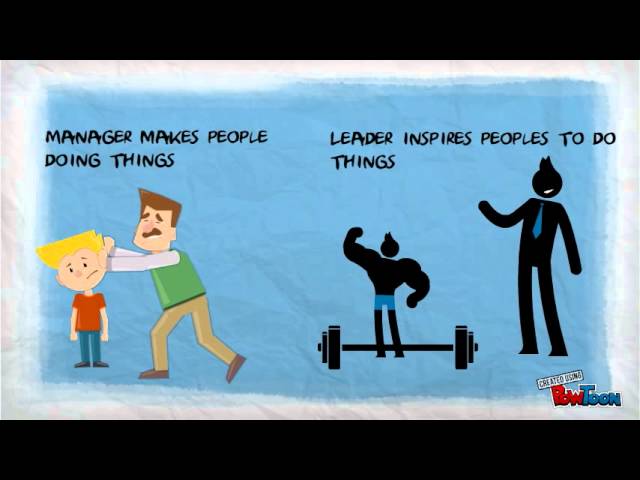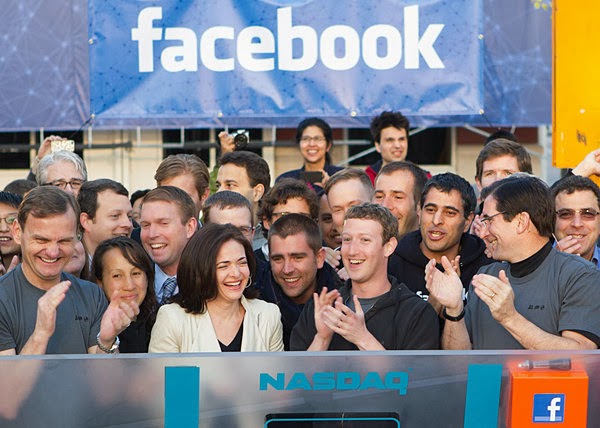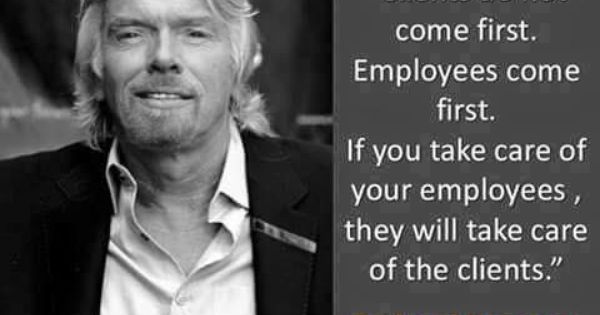Most effective Leadership & Management Styles & approaches
“Which personal style should managers adopt to ensure success? What is the most effective approach to managing the work of subordinates? These questions have been extensively researched and debated over the last century, and while the general consensus has moved away from ‘command and control’ to management and leadership towards more consultative and participative approaches, there is no single ideal, as the best approach may vary according to circumstances and individual characteristics” (CMI 2013).
This blog focuses on differences and similarities between Leadership and Management, and identifies the best possible approach to managing work of the subordinates and draw a conclusion based on the questions mention below:
- What is the most effective approach to managing the work of subordinates?
- Which personal style should managers adopt to ensure success?
- What is the most effective Leadership style?
According to Mullins (2010:434) management is defined as the “process of getting work done through others” and Leadership Mullins (2013:369) defined as “a process of influence other people to get the work done.” There are several definitions of leadership given by the different authors with the similar themes. Yukl (2010:26) defined leadership as “the process of influencing other people to understand what they need to do and how it can be done and also it facilitates others to work together to achieve common goals.
Similarities & differences between management and Leadership:

Management and Leadership possess some of the similarities and differences, according to Gosling et al. (2012) leadership & management exist in the organization till the organization is performing. He also states that, management & leadership depends on the company environment and how they operate. Management & leadership both involves in interpersonal skills where both interact with other individuals so that they can come together to share ideas and complete the shared objectives.
However, there are certain differences between Management & Leadership. According to Sanborn (2012), Leaders win followers whereas Managers have employees, Managers takes credit for the work of his team performed whereas Leaders take responsibility and make heroes everyone among them. According to Kent (2005), Management is an authority relationship where managers can dedicate work to the employees whereas Leadership is an influence relationship which influence others individual to perform the task. Mullins (2016), argues that Management & Leadership is inseparable in practice.
Most effective approach to managing the work of subordinates:
There are many arguments and disputes when it comes to most effective approach to managing work of subordinates. Frederick Herzberg (1968) developed Job-enrichment model which describes as a medium through which management can motivate sell driven employees. This strategy helps employees to learn new skills, it focuses on giving employees more variety and responsibilities which helps to reduce boredom of doing repetitive task which leads to positive environment results in high productivity. This model had certain disadvantages as it increases workload which may results in bad performance because of lack of perparation. Thus job enrichment has only limited disadvantages which can be overcome by proper training and preparations (Kulpa, 2016). It is an effective technique and its advantages are crucial.
Goleman’s Leadership Styles

The CMI states that, there is no single ideal, as the best approach may vary according to circumstances and individual characteristics” (CMI 2013).
From the above figure, Goleman (2000) has six types of leadership styles. He agrees that leader change their leadership styles depends on the circumstances when its required.
According to Lewin (1939), Leadership style is incorporated in three styles:
- Autocratic: leaders have command and control
- Democratic: where it encourages others to participate in decision making, but it’s been finalized by the leader.
- Laissez-faire: leader has faith and trust in the team.

The approaches mentioned above differ from organization to organization. For instance, in tourism industry all the above approaches can be used depends on the situation there is no fixed approach can be used in tourism industry. Whereas, in Army autocratic approach is useful to win battles.
Leader is one who inspire and influence other to work. Richard Branson, founder of Virgin Group. He believes in autonomy leadership style, he gives freedom to employees and responsibilities to work on big projects and trust their decision which makes them more responsible and recognize the work they doing is more important which increases productivity and employees feel more dedicated towards the brand itself (Undercover Recruiter, 2015). He also introduced the flexible working policy where an employee can work from whenever and wherever they want. It makes employees motivated and also make work life balance (Virgin, 2016).

Another great example of great leadership is Mark Zuckerberg, Founder of Facebook. He empowers his employees and he believes in effective and regular communication. Employees at Facebook thinks creative and do things outside the confines of bureaucracy that exist in other companies which motivate employees and also he engaged with the employees regularly and effectively on the projects and give them direct feedbacks (Lifehack.org, 2016).
My Personal Leadership Style:

My preferred style to led by, keep in mind the tourism industry and fast changing global conditions and competition. I would like to be a “Affiliative” leader like Richard Branson where he believes staff comes first which results in high productivity and positive impact on the organization where employees are motivated to perform better (Virgin, 2014). Additionally, I would like to be a “Democratic” leader like Mark Zuckerberg, where employees acts in creative way and communicate with Zuckerberg directly which motivates them to work and feel valued in the company (Lifehack.org, 2016).
Conclusion:
Leadership and management are different from others in certain extent but the main goal is to increase the company’s performance. There is no particular leadership style which fits for all organization, it varies depends on the circumstances and individual characteristics stated by CMI (2013).
Reference:
Chartered Management Institute. (2013). Understanding Management Styles Checklist 236. [online] Available at: https://www.managers.org.uk/~/media/Files/Campus%20CMI/Checklists%20First%20Management%20Role/Understanding%20management%20styles.ashx [Accessed 31 Aug. 2016].
Entrepreneur.com. (2016). To Motivate Employees, Find a Balance Between Job Enrichment and Job Enlargement. [online] Available at: https://www.entrepreneur.com/article/242816 [Accessed 31 Aug. 2016].
Goleman, D., (2000) Leadership That Gets Results [online] available from <http://www.springbusinessmanagement.co.uk/wp-content/uploads/2014/07/Leadership-That-Gets-Results-Goleman.pdf [Accessed 31 Aug 2016]
Lewin, K., Lippitt, R. and White, R. (1939). Patterns of Aggressive Behavior in Experimentally Created “Social Climates”. The Journal of Social Psychology, 10(2), pp.269-299.
Lifehack.org. (2016). [online] Available at: http://www.lifehack.org/articles/work/10-reasons-why-99-facebook-employees-love-mark-zuckerberg.html [Accessed 31 Aug. 2016].
Mullins, L., (2013) Management and Organisational Behaviour, 10th Edn. Harlow: Pearson
Sanborn M. (2012). 9 differences between managers and leaders. [online] Available at: http://www.marksanborn.com/blog/9-differences-between-managers-and-leaders/ [Accessed 31 Aug. 2016].
Undercover Recruiter. (2015). The 5 Secrets of Motivation From Virgin Group? #MotivationMonday. [online] Available at: http://theundercoverrecruiter.com/virgin-branson-motivation/ [Accessed 31 Aug. 2016].
Virgin. (2014). Look after your staff. [online] Available at: https://www.virgin.com/richard-branson/look-after-your-staff [Accessed 31 Aug. 2016].
Yukl, G., (2013) Leadership in Organisations. Harlow: Pearson Education

Hello Awais, I am a regular reader of your blog and I appreciate your researches. I mostly like the point where you have shown similarities and differences of a manager and a leader. Often people consider these characteristics are interchangeable.
LikeLike
Thanks Haque. I am glad you are liking my blogs.
Anything you want me to add or make my blogs more effective?
LikeLiked by 1 person
Thank you for your reply. I think this blog is a good short read. If not all it provides a clear idea about management and leadership. I think your blog represents a good vibe. 🙂
LikeLiked by 2 people
Thanks Haque for your valuable and nice feedback !!
LikeLike
hey there,
Mark Zuckerberg is undoubtedly proving himself to be a great leader as his company relentlessly grows in the face of massive competition posed by competitors like Google etc, but do you think if Mark had been in a different industry, would he be following the same approach? Put in another words, Lets assume mark had been a leader in a manufacturing where work has to be more structured, would it be feasible for mark to bear workers approaching him with suggestions? Or would he be better off changing the strategy? Thanks.
LikeLike
Interesting question Waleed, leadership style cannot be same it differ from company to company. If he is leader in manufacturing industry than maybe he will use authoritative approach rather than democratic approach.
LikeLike
Hello Awais,
You mentioned that your leadership style is inspired by Richard Branson’s one: the Affiliative style. I understand that flexibility with their employees and friendly relationship are advantages of this leadership sty…but can you tell me what do you think are the challenges ?? Thanks!
LikeLike
Hello Laura,
With every leadership style there are some pros and cons.. i think with affiliative leadership employees can do thinks which they prefer right according to them but for the company maybe thats wrong which can leads to poor performance because of the complacent of positive feedback. It will also affect the employees in such a way that they can run out of direction to do better.
LikeLike
Hi Awais, interesting blog. No doubt leaders like Zuckerberg and Branson inspire many and they hold top positions in their company. But I feel leaders can emerge from within the subordinates and teams as well. They might not hold the ‘title’ but their colleagues may look up to them as a leader. What are your thoughts on this?
LikeLike
Hi Laraib, thanks for the feedback. I agree with your views but the question arises whether the colleagues take initiative or just prefer to suggest ideas. Leader is one who leads from the front and help their subordinates and influence others. May be in this case employees are good in sharing views, help their colleagues. Subordinates loves them and look at them as a leader but if they cannot take initiative than there is no point to call them a leader.
LikeLike
Interesting piece Awais. We often hear about leaders like Branson and wish we worked in the same environment however I think we often forget that the places we work for or places we will work in the future might be different than the ones we hear. Do you think effective recruitment process and hiring the people who would respond well to the company style can enhance the leader’s style and ability to manage and lead?
LikeLike
Thanks Baatark, I am glad you like my blog!!!
I am agree with your views and i also think the same way effective recruitment process and individual who will respond well to the company’s style and in future they can be a good manager or effective leader depends how they see things in the industry. Research shows every good employees can be a good manager but not a good leader.
Hope you satisfied with my answer..
LikeLike
Hi Awais,
Which leadership style you use as a manager?
LikeLike
Hi Paul thanks for your valuable feedback!!
As a manager I will change my leadership style depends on the situation!!
LikeLike
Good read. Leadership style of each individual is unique and your blog has very well guides leaders to take the right approach.
LikeLiked by 1 person
Thanks shakti for your comment!!
I am glad you like my blogs.
LikeLike